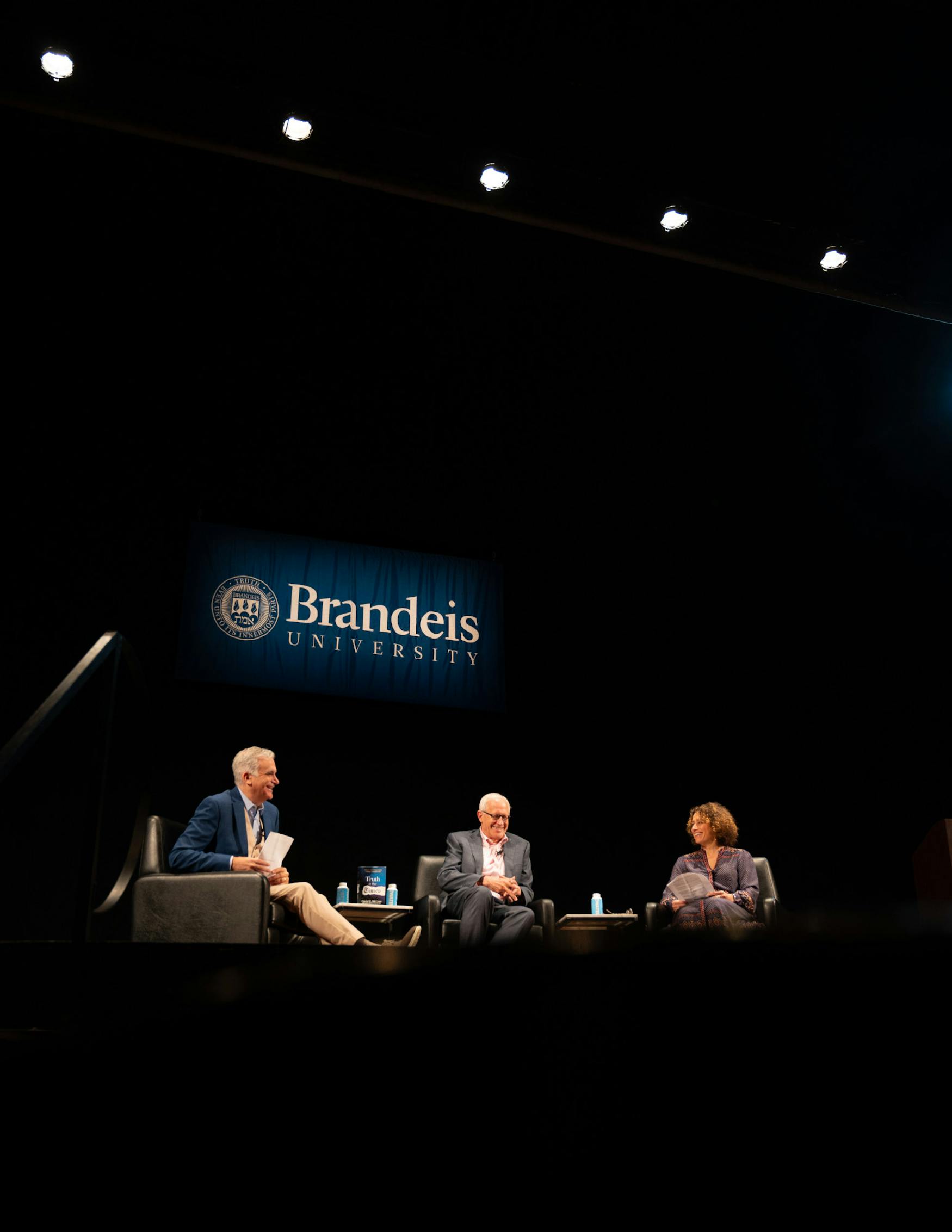David McCraw visits campus and speaks to students and alumni
The Journalism department hosted the top New York Times lawyer, who spoke on important issues facing the press today.
On Friday, Sept. 27 at 9 a.m., approximately 100 students, alumni and faculty of Brandeis University flocked to the Spingold Theater. David McCraw, Deputy General Counsel and Senior Vice President of The New York Times, took the stage to tackle big issues in contemporary media and politics. The event was moderated by a duo of Brandeis journalism professors: Prof. Neil Swidey (JOUR) and Prof. Ann Silvio (JOUR).
The moderators opened by painting a detailed picture of McCraw’s accomplishments. Swidey said he “play[s] a pivotal role” in journalism and various First Amendment issues, in addition to being the point-man for securing the return of kidnapped journalists abroad. The room was relaxed and friendly, and McCraw spoke freely on various journalistic and political issues. For example, he was adamant about the importance of our populace remaining in touch with the news to be informed voters. He said journalism is experiencing a “trust crisis,” and encouraged people not employed by the media to speak up about the importance of trustworthy, independent journalism.
Similarly, McCraw called for a “toning down of the rhetoric attacking the press.” He expressed significant concern with former President Donald Trump’s rampage against the media, and noted that McCraw’s staff receives many threats against their lives as a result of the now heated political climate. He also touched on topics such as how The Times vets questionable sources, balances public interest with complying with legal obligations and the importance of governmental non-interference in journalism. As McCraw is a lawyer and a journalist, he said he is obligated not to advance crimes. He specifically honed in on the gray area of reviewing and publishing information obtained from leaks, citing both the 2013 Edward Snowden fiasco and the recent hacks targeting both the Trump and Harris campaigns.
Edward Snowden was a former National Security Agency and Central Intelligence Agency contractor and employee, who discovered that the United States was engaging in mass warrantless surveillance against its own citizens. Disillusioned, he became a whistleblower, securely exported top secret documents evidencing his claims and gave them to journalists. More recently, Iran targeted the Trump campaign and leaked the results of opposition research conducted on his vice presidential shortlist, including JD Vance. McCraw acknowledged that publishing leaked information encourages further hacking and leaking, but was clear that if information is relevant to the public it may be published regardless.
The event concluded with McCraw taking questions from the audience, addressing each inquiry with care and concern. One audience member asked how the news and people who are told to avoid it to protect their mental health can reach each other. He acknowledged the difficulty and complexity of the modern relationship with the press, but doubled down on the necessity of having an informed populace. Finally, McCraw left the audience with his assurance that speaking to students restores faith in humanity, and encouraged people to spend the time to do so.



Please note All comments are eligible for publication in The Justice.